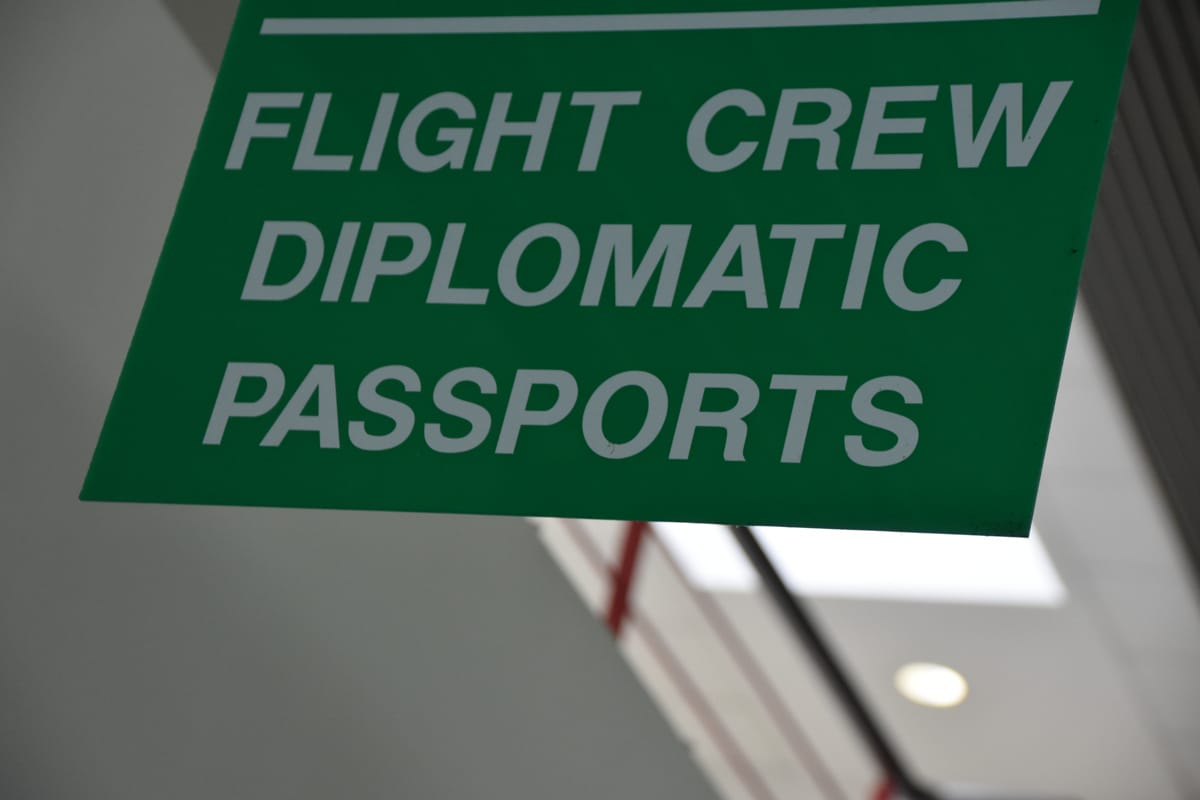Australia has seen two extraordinary cases brought before the courts in recent months that have tested the limits of diplomatic immunity. This is not the cliché of foreign envoys flaunting traffic fines in Canberra, but a weighty clash involving the rights of workers and the posts that employ them.
The claims have tangled up a previous deputy head of mission from Sri Lanka and a onetime Indian high commissioner to Australia. Both these senior diplomats, along with their governments, opted not to engage with the legal proceedings.
The court, however, ruled that diplomatic protections do not apply.
The cases are separate, yet the facts as determined by the court are similar. Each case features a woman brought from their home country to work as a house cleaner and cook, only to have her passport taken away, be held in Canberra in effective isolation, and barely paid.
These are not stories about the contours of global affairs or the intricacies of treaty negotiations. Yet this kind of issue carries the potential to generate an international incident.
There is a prospect that similar cases will arise, or that resentments will be harboured that might rebound in unexpected ways.
On 15 August, judgement was handed down in an unpaid wages case against Sri Lanka’s former deputy high commissioner to Australia, Himalee Arunatilaka. The case was brought by Priyanka Danaratna, who travelled from Sri Lanka to Canberra in 2015 to work as a domestic servant for Arunatilaka. Danaratna had at the time never been overseas and had no English-language skills.
“I worked seven days a week. I woke up at 5:30am, and by 6am I was working”, Danaratna told the court in an affidavit. “I prepared breakfast at home and lunch for Ms Arunatilaka to take to the High Commission. I laid out the clothes for Ms Arunatilaka to wear to work.”
Danaratna would clean the house, do laundry and work in the garden but was not allowed to go to the shops by herself.
“On one occasion during my employment with Ms Arunatilaka, I burned my hand on hot oil in the kitchen. It was badly burned. I called Ms Arunatilaka at work, and she came home and took me to the hospital. I had two days off work. Apart from these two days, I did not take any time off.”
Over the course of almost three years in Canberra, Danaratna was paid a total of $11,212 – less than 65¢ per hour.
Complicating the case was the question of diplomatic immunity. If the case had been brought against the Sri Lankan government, it would have had no chance. But the court found “no basis to argue” that Danaratna was engaged to perform work for a foreign state. Nor did Arunatilaka’s conduct form “part of her functions as a member of the mission” – so again, no immunity. The relationship between Arunatilaka and Danaratna was found to be a private contract between individuals. It followed a ruling in a 2021 case involving a domestic worker for Pakistan’s high commissioner to Australia.
Arunatilaka was found to have contravened the Fair Work Act in Australia as an employer, including requiring in excess of 10 ordinary hours of work in any one day, more than an average of 38 hours a week full-time, failing to pay overtime or penalty rates, or provide a monthly salary or payslip.
Arunatilaka was ordered to pay Danaratna $374,151.90, plus interest – a hefty amount that has caught attention in legal circles. A penalty hearing is expected in the coming days.
Arunatilaka is now Sir Lanka’s permanent representative at the United Nations in Geneva. She did not appear at the hearings or respond to a question I sent asking if she would comply with the ruling. Sri Lanka’s foreign ministry backed her conduct, stating Danaratna “absconded” on the eve of her employer’s departure.
The statement also said it was “standard practice” for diplomats to take domestic assistants abroad and the salary was “mutually agreed”.
If standard practice, this points to a bigger question. How many similar arrangements are hidden in Canberra’s leafy suburbs? Or indeed, in other capitals around the world?

Advocates claim to have helped as many as 20 domestic workers suffering unfair conditions in diplomatic households in Canberra over the years. An ABC Four Corners investigation in 2018 also highlighted the problem. The visa category that allows full-time domestic workers to accompany someone who holds a diplomatic visa to Australia specifies a requirement to “have an employment contract that meets Australia’s workplace laws” but advocates want stronger monitoring to ensure conditions are met.
Another recent court case also made significant findings.
In March, the federal court fined India’s former high commissioner Navdeep Suri $97,200 for breaches of the Fair Work Act following a case bought by his previous housekeeper, Seema Shergill. “The circumstances of this case fall within this definition of slave-like conditions,” the court ruled, also rejecting that immunity provisions applied.
“The evidence revealed that Ms Shergill was not employed by the High Commission nor performed any duties for the Commission.”
The court heard that Shergill had travelled from India to Canberra to work for Suri at his residence in September 2015, had endured long hours with no time off, whether for holidays or a sick day, and suffered ill-treatment, including not being allowed to leave the residence. The court also heard that the visa documents Shergill was required to sign were in English, though at the time she could not read the language.
The ruling in the Sri Lanka case included a passing jab at the “perplexing” lack of bureaucratic attention for the visa application that saw a domestic worker brought to Australia.
“Ms Shergill was paid every three to four months directly into a bank account in India, which had been set up for her by Mr Suri. Ms Shergill received only the equivalent of $2,496.08 during the entirety of the employment claim period [ending in May 2016],” the judgement said.
Suri did not appear in court, nor did he pay Shergill the $136,276.62 plus interest ordered by the court as compensation for unpaid wages.
“I had no financial resources to engage lawyers in Australia to defend my reputation,” Suri told me in response to questions, denying wrongdoing.
“And the Government of India chose not to contest as a matter of principle. They did not recognise the jurisdiction of an Australian court over an Indian diplomat or over a diplomatic service staff.”
Suri retired from India’s foreign service in 2019 and is now a visiting fellow with the Observer Research Foundation. He said the Indian government had taken up the matter “vigorously” via diplomatic channels, while he also wrote to Australian officials ahead of the judgement, setting out a detailed response, and asked for letters to be passed to the court.
Suri said he had neither resources or the intention to pay the costs ordered.
India’s External Affairs department issued a statement following the judgement in November, describing the claim made against Suri as “false”.
A spokesperson said that Shergill had “wilfully deserted her post” in a bid to stay in Australia, that she had travelled on an official passport, was granted an Australian diplomatic visa, and urged Australia to uphold the Vienna Convention on Diplomatic Relations.
Foreign Minister Penny Wong was quizzed by local media about the case last year while in New Delhi, and was careful not to inflame any Indian response, saying only that the court had “engaged substantively” with the scope of immunities under the Vienna Convention.

The court was not asked to consider the role of the Australian government in either case. But the ruling in the Sri Lanka case included a passing jab at the “perplexing” lack of bureaucratic attention for the visa application that saw a domestic worker brought to Australia.
“There was no apparent attempt to conceal the arrangement,” the court observed, yet it should have been clear from the application that Danaratna was not going to be paid nor enjoy the protections entitled to in Australia. “It may have been the case,” the judgement said, “that insufficient scrutiny was given by the [Immigration] Department prior to the inception of this arrangement. If there had been, the circumstances of Ms Danaratna’s employment may have been very different.”
The risk is now abundantly clear.
In Shergill’s case, the court heard she first slept on Canberra’s cold streets after leaving her job, and was then assisted by the Salvation Army. She was later offered residency in Australia under what is known as a Class DH, Subclass 852 Referred Stay Permanent visa. This plain technical label belies the seriousness of the visa category – intended for “eligible victims or witnesses of trafficking who have contributed to an investigation or prosecution of a human trafficking related offence, and as a result would be in danger if they returned to their home country.”
The grant of this visa type indicates an assessment and awareness inside government of a problem with personal staff brought to Australia by foreign diplomats. An earlier court case in the United Kingdom involving a Filippino cleaner employed by a Saudi envoy also highlighted the risk.
A foreign worker in Australia without a passport can only obtain a replacement via their local embassy or high commission.
Neither of the recent judgments has led to a serious flare up in tensions for Australia with either India or Sri Lanka.
Local media in Sri Lanka acknowledged that the court ruling raises questions about exploitation, while arguing cultural context matters: “For many Sri Lankan housemaids, such wages might be perceived as relatively high compared to local salaries,” one editorial said.
But this ignores the danger of entrapment that is at the heart of the issue. A foreign worker in Australia without a passport can only obtain a replacement via their local embassy or high commission.
Diplomatic immunity is intended to protect open communication between countries, not be a catch-all excuse. The issues raised by these cases clearly create the potential for friction between governments. The easiest answer would be to stop the practice of allowing domestic staff to accompany diplomats. That hasn’t happened.
The legal requirement to meet local workplace laws involves scrutiny of the arrangements by Australian authorities – this should not be just as a box-ticking exercise at the outset, but carry the potential for monitoring. The anti-slavery Mercy Foundation has called for measures to ensure such workers are paid in accordance with local entitlements. Without such guarantees, there is a prospect that similar cases will arise, or that resentments will be harboured that might rebound in unexpected ways.
The United States and India fell out in 2014 after an Indian consulate official was arrested in New York on charges of visa fraud and underpaying a maid. Ironically enough, India retaliated by cracking down on parking around the US embassy in New Delhi.

